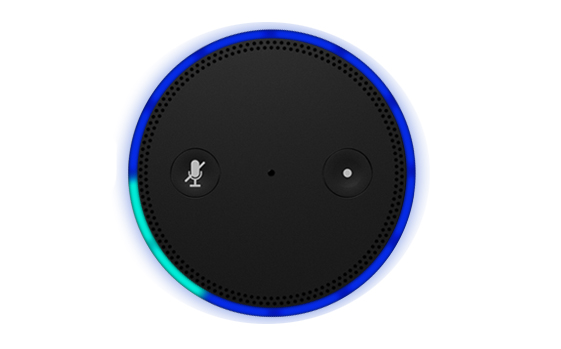For the last few months, our family has had an Amazon Echo in the house.
It’s a (rather elegant looking) microphone and speaker gadget that we had set up in our living room. In it lives the voice of “Alexa.” She’s like Siri on your iPhone, except she’s always on. You don’t need to press a button, you just say, “Alexa, set a timer for ten minutes” and your timer is set. Her range is very strong so from almost any room on our main floor, we can ask her questions.
Generally speaking, Alexa has fit into our routine very comfortably. The things she can understand and answer also are getting better all the time with new software upgrades. Some of our most common uses are:
- We set timers with her frequently, because our daughter needs that extra three minutes before bedtime.
- Music! “Alexa, play Taylor Swift.” “Alexa, play some jazz.” “Alexa, play some Oldies.”
- News. “Alexa, what’s the news?” Which is followed by a few minutes of the most recent news from NPR and a little weather update.
There’s a lot more she does (conversions, spelling, math, adding things to lists, playing the radio, sports scores), but setting timers, playing music, and listening to the news are probably our main uses for the Echo.
What’s interesting, if not a little eerie sometimes, is watching a 3-year old interact with Alexa. Our daughter Hannah has a hard time saying “Alexa” so she starts getting mad at the Echo and shouting “Whawexa, set timer for five minutes!” which only works half the time.
Hannah is really liking Taylor Swift right now, so we’ve been hearing “Whawexa, play the York song!” (Welcome to New York). or “Whawexa, play the Hey song!” (Bad Blood). These requests usually fail.
One time Alexa misunderstood Hannah’s question and thought (for some reason) that she had been asked to tell a joke. (Alexa can also tell jokes.)
The conversation went something like this:
Hannah: [unintelligible, but apparently something she said sounded like “Whawexa, tell a joke.”]
Alexa: “How do you know if you are a pirate? … You just ARRRRR.”
Hannah: [bursting into tears] “Alexa called me a pirate!”
The most interesting interaction so far, though, was when Hannah asked, “Whawexa, do you love Mommy?”
Alexa didn’t respond.
It was that question that made Mary and I decide that we needed to start changing how we speak to Alexa. We’ve started adding “please” when we ask her questions, and we say thank you after she’s responded, so that we can continue to model good manners. As a digital assistant, Alexa might not be capable of love, but to our daughter she is human enough that we have decided we should treat Alexa with politeness and respect.
Should the robots ever become self-aware, treating them with a little dignity seems like a safe precaution.
